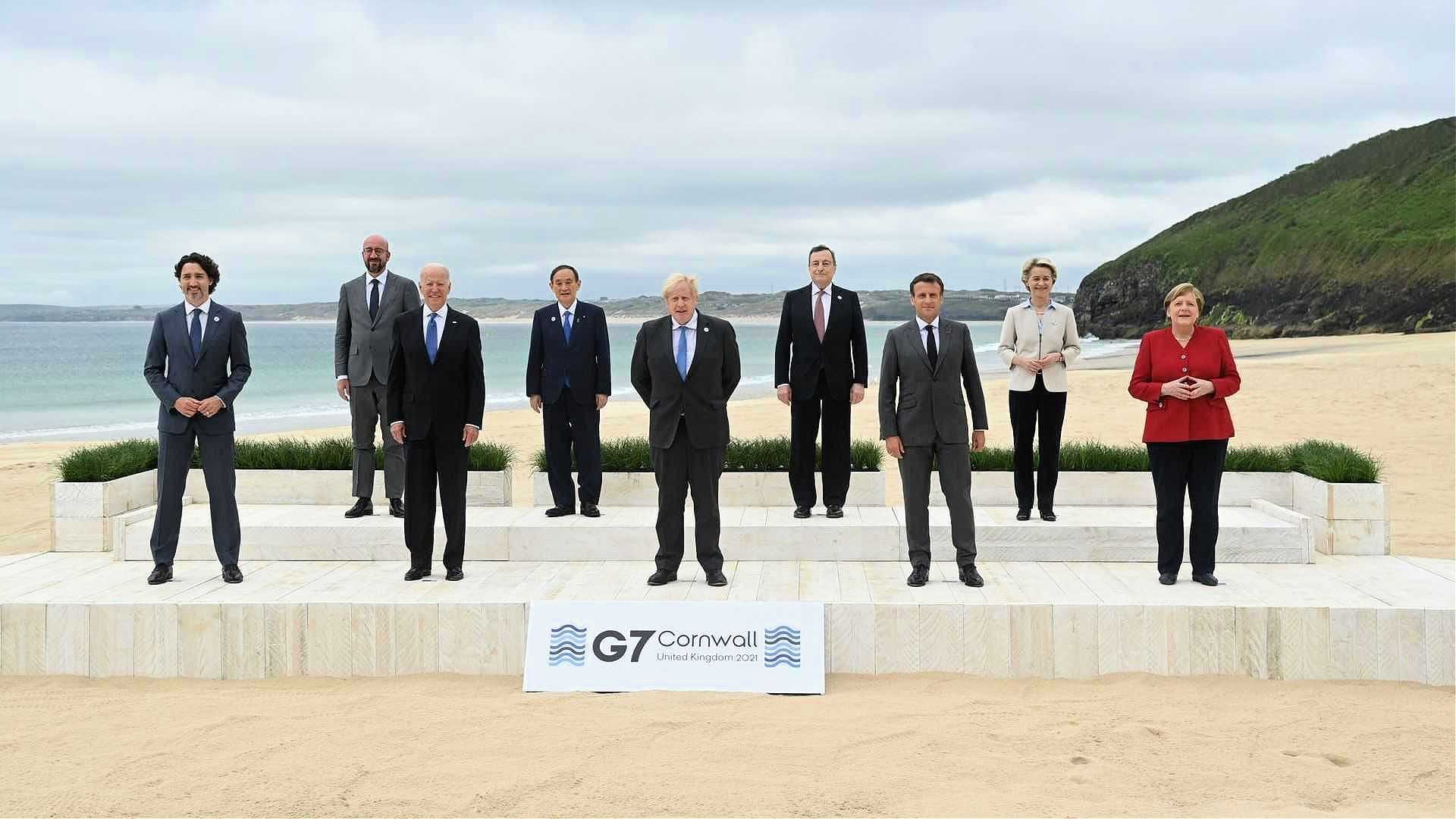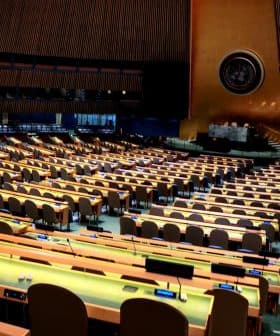Climate Change Topped Agenda as World Leaders Met in Cornwall for G7
The G7 leaders met in Carbis Bay, Cornwall and reaffirmed their support for the Paris Agreement, committing to accelerate efforts to cut greenhouse gas emissions and limit global temperature rise to less than 1.5 ºC above pre-industrial levels. They also agreed to curtail the expansion of coal-fueled power stations, invest in a $2 billion fund for energy production projects in developing countries, and aim for net-zero greenhouse gas emissions by 2050.
Climate change took center stage as leaders of the Group of Seven (G7) – a political forum composed of the world’s seven wealthiest liberal democracies – met in Carbis Bay, Cornwall over the weekend.
The leaders of the United States, Canada, Japan, the United Kingdom, Germany, France and Italy reaffirmed their support for the Paris Agreement and agreed to continue working together to limit global temperature rise to less than 1.5 ºC above pre-industrial levels.
In our agricultural, forestry and other land-use sectors, we commit to ensuring our policies encourage sustainable production, the protection, conservation and regeneration of ecosystems and the sequestration of carbon.
“We commit to accelerating efforts to cut greenhouse gas emissions and keep the 1.5 °C global warming threshold within reach, strengthening adaptation and resilience to protect people from the impacts of climate change, halting and reversing biodiversity loss, mobilizing finance and leveraging innovation to reach these goals,” the leaders wrote in the summit’s final statement.
See Also:Climate Change Is Altering the Nutrient Profiles of the World’s CropsIn order to enforce the new policies, the leaders have agreed to curtail the expansion of coal-fueled power stations in their own countries and around the rest of the world.

The G7 leaders in Cornwall
According to a White House press release, the G7 group has also agreed “to end new direct government support for unabated international thermal coal power generation by the end of this year.”
“More broadly, we reaffirm our existing commitment to eliminating inefficient fossil fuel subsidies by 2025, and call on all countries to join us, recognizing the substantial financial resource this could unlock globally to support the transition and the need to commit to a clear timeline,” the G7 leaders added in their joint statement.
Furthermore, a new $2 billion (€1.65 billion) fund will be deployed each year by the U.S., Canada, the U.K. and Germany in developing countries for energy-production projects that will not include coal as fuel unless new coal plants are equipped with technologies capable of capturing their own carbon emissions.
The fund will also invest in technology and training to help developing countries adopt cleaner and more sustainable energy production infrastructures.
Those resources, said the G7 leaders, “are expected to mobilize up to $10 billion (€8.25 billion) in co-financing, including from the private sector, to support renewable energy deployment in developing and emerging economies.”
“We reaffirm the collectively developed countries goal to jointly mobilize $100 billion (€82.5 billion) per annum from public and private sources, through to 2025,” they added.
G7 leaders have also pledged to work on an industrial decarbonization agenda to boost innovation and common standards while reducing emissions in key areas such as farming, transport and steel and cement production.
“In our agricultural, forestry and other land-use sectors, we commit to ensuring our policies encourage sustainable production, the protection, conservation and regeneration of ecosystems and the sequestration of carbon,” the statement read.
Within or before 2030, the seven-nation group has agreed to halve the emissions recorded in each country in 2010.
See Also:2020 Tied for Hottest Year on Record, Capping Off the World’s Warmest DecadeBy 2030, the leaders agreed to work for the protection of at least 30 percent of all lands and seas. To this end, U.K. Prime Minister Boris Johnson has also announced a £500 million (€580 million) per annum “Blue Planet fund.”
Aimed at reducing marine pollution, protecting seas and biodiversity, the fund will help countries such as Ghana, Indonesia and the Pacific island nations curb excessive fishing practices while working to protect barrier reefs and marine life.
Plastic littering was also cited by the G7 leaders as one of the major areas of intervention needed to preserve biodiversity and sea life.
A “Build Back Better World” initiative has also been announced by U.S. President Joe Biden to reach developing countries with massive public and private funding and partnership aiming at reducing the infrastructure gap.
While still lacking in the details, the U.S. initiative puts environmental sustainability at its center and won the backing of the other G7 countries.
“At the heart of our agenda for economic growth and recovery is a green and digital transformation that will increase productivity, create new decent and quality jobs, cut greenhouse gas emissions, improve our resilience and protect people and the planet as we aim for net-zero [greenhouse gas emissions] by 2050,” the G7 leaders also wrote.
Those strategies will also be proposed at the next United Nations climate conference, the CoP26 meeting, which will be held in Glasgow in November.









